A few days ago, Dr. Heinzgerd Brakmann drew my attention to a Coptic parchment folio from the collection of the National Library in Paris. The leaf survived dismembered from its original binding and is currently bound as folio 147 in the volume BnF Copte 12920, which is a miscellany of different liturgical fragments (including lectionaries, euchologia, hymnaries, directory of Psalms etc). The fragmentary text is written in a single column and the pagination, 181-182 is still clearly visible on the upper outer corners of the pages. As Dr. Brakmann informed me, Hans Quecke[1] edited and translated into German the verso of the leaf (from line 4 onward), the recto still being unpublished.
Here is Father Quecke’s presentation of the unedited part:
Auf Seite 181 und den ersten drei Zeilen von Seite 182 lesen wir den Schluß eines homiletisch-aszetischen Textes, den ich bisher nicht identifizieren konnte.[2]
Indeed, this part of the fragment remained unidentified until now.
However, upon a closer examination, it appeared to me that the unpublished text of BnF Copte 12920, f. 147 contains in fact a selection of passages from the Asceticon of Abba Isaiah. This means that good fortune just brought to light another previously unknown witness of the Asceticon!
What is more, the paleographical inspection revealed that a fragment from the National Library in Vienna (call number K 9639),[3] paginated 163-164, preceded at a short distance the Paris fragment in the same codex.
The second fragment contains in its turn material extracted from the Logoi of Isaiah of Scetis. I compiled a list of the parallels between the Coptic text and the Syriac version published by René Draguet,[4] and I am transcribing it here, leaving a proper edition for a later date. In each case, I translated the incipit of the Coptic text.
FRAGMENT 1, Vienna K 9639:
recto lines 1-5 = Draguet, CSCO 293, p. 144 (Syriac Logos 10): “[When you take] the oblation, guard yourself against your thoughts while your senses abide in the fear of God, so that you will become worthy of the holy mysteries and the Lord will heal you.”
recto lines 5-7 = Draguet, CSCO 293, p. 145 (Syriac Logos 10): “Pay attention to yourself. Do not let your body wither so that the vain glory could steal you.”
recto lines 7-17 = Draguet, CSCO 293, p. 162-163 (Syriac Logos 11): “If you take from the mysteries of the oblation, guard yourself against every wicked thought so that you do not take your condemnation. If a fantasy is tempting you during the night, guard your mind during the day etc.”
recto lines 17-22 = Sauget, “La double recension,” p. 355[5]: “Do not quit if you fight against the passion, but throw yourself in front of God, saying with all your heart: ‘Help me, I am a wretched person because I am not able to stand it,’ and he will readily help you.”
recto lines 22-24 = Draguet, CSCO 293, p. 19 (Syriac Logos 5): “Constrain yourself through the work of your hands and the fear of God will abide in you.”
recto line 24-verso line 7 = Draguet, CSCO 293, p. 21-23 (Syriac Logos 5): “Accustom your tongue to say: ‘Forgive me!’ and humility will come to you. Keep these three things every time you sit in your cell: the hand-work, the reciting and the prayer etc.”
verso lines 7-13 = Draguet, CSCO 293, p. 25 (Syriac Logos 5): “Do not be gluttonous so that your former sins shall not be renewed in you again etc.”
verso lines 13-16 = Draguet, CSCO 293, p. 26 (Syriac Logos 5): “Constrain yourself and make many prayers with tears and God will have mercy on you and he will strip you from the old man that sins.”
verso lines 16-ad finem = Unidentified
FRAGMENT 2, Paris 12920, f. 147
recto lines 1-8 = Draguet, CSCO 293, p. 238 (Syriac Logos 13): “…and they prevent the virtues from living together with the intellect: these are captivity, sloth, and forgetfulness. For forgetfulness … is stronger than all the thoughts and generates all the passions and those things that the man builds, she shakes them every day.”
recto lines 8-13 = Draguet, CSCO 293, p. 242 (Syriac Logos 13): “Here are the works of the new and of the old man that were announced etc.”
recto lines 13-24 = Draguet, CSCO 294, p. 369 (Syriac Logos 20): “Do not neglect your salvation, O my brothers, etc.”
recto lines 24-27 = Unidentified
recto line 27-verso line 3 = Draguet 294, p. 415 (Syriac Logos 23): “[Woe to those] who spent their [time and who thought that they are not sinners etc.)
The form of the Isaian material, i.e. short extracts from several logoi, is rather strange and resembles much the Arabic collection published by Mgr Joseph-Marie Sauget.[6] About this issue and the structure of the codex to which the Paris and Vienna fragments originally belonged, I will return in a future post.
These new fragments, previously unknown, bring to six the number of Sahidic manuscripts containing works by Isaiah of Scetis.[7] If we count as well the two Bohairic codices announced recently on this blog, we have a total of eight Coptic manuscripts that contain, at least in part, the Asceticon of Abba Isaiah. An edition based on all the manuscripts available is now conceivable.
[1] H. Quecke, Untersuchungen zum koptischen Stundengebet (Publications de l’Institut Orientaliste de Louvain, 3; Louvain: Institut Orientaliste, 1970) 519-524. The published portion of the text contains an unknown prayer.
[2] Quecke, Untersuchungen, 519-520.
[3] This folio was published without translation in K. Wessely, Griechische und koptische Texte theologischen Inhalts vol. 5 (Studien zur Palaeographie und Papyruskunde, 18; Leipzig: Haessels Verlang, 1917) 74-75 (= no. 276a-b).
[4] I relied on the two volumes containg the French translation of the Syriac: R. Draguet, Les cinq recensions de l’Ascéticon syriaque d’abba Isaïe 2 vols. (CSCO, 293-294. Scriptores Syri, 122-123; Louvain: Secrétariat du CorpusSCO, 1968).
[5] The form of this saying does not correspond exactly to the Syriac text in Draguet, but parallels almost word by word the Arabic version published by J.-M. Sauget, “La double recension arabe des ‘Préceptes aux novices’ de l’Abbé Isaïe de Scété,” in Mélanges Eugène Tisserant vol. 3/2 (Studi e testi, 233; Città dell Vaticano: Biblioteca Apostolica Vaticana, 1964) 229-356
[6] Sauget, “La double recension.”
[7] Partly edited by A. Guillaumont, L’Asceticon copte de l’abbé Isaïe. Fragments sahidiques édités et traduits (Bibliothèque d’études coptes, 5; Cairo 1956), but there are many other fragments to be added to the Sahidic dossier. Guillaumont’s book can be downloaded at the Resources page of this blog.









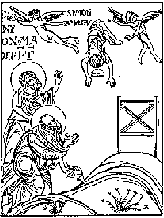




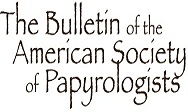
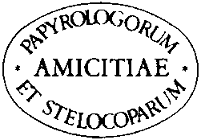
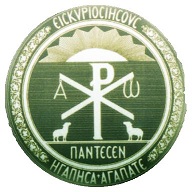





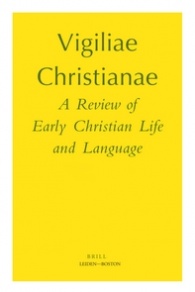






Pingback: Congratulations to Joel Watts! | Exploring Our Matrix
Pingback: Once Again on the Asceticon of Abba Isaiah | Alin Suciu